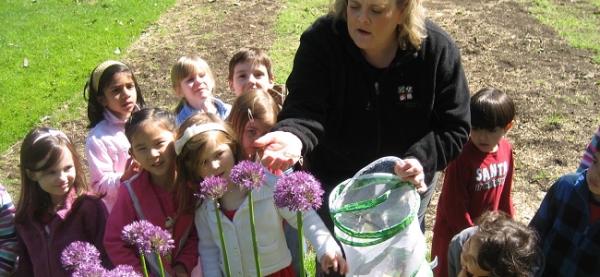"We need to move away from this line of thinking and consider methods of integrating outdoor learning into the curriculum."
The government has recently published the “What Works” report, which puts the magnifying glass on the education sector to see what is really working in schools, with the aim of ensuring that our next generation is academically successful. The report focuses on research gathered by the Education Endowment Foundation and the Sutton Trust, which they have collated into the Teaching and Learning Toolkit.
The Toolkit measures the impact and additional months progress expected of different types of educational intervention. The measurement is estimated by using quantitative measures of the impact of different approaches on learning. Meta-cognition and self-regulation (enabling and motivating children to learn off their own steam), feedback and peer tutoring are among the educational interventions with the most positive results. I am certainly not the first to say that the Toolkit is an invaluable resource for teachers and schools. We can now look at the facts, compare the educational interventions that are the most effective for learners and evaluate the measures that are already in place within our school system with a view to improvements.
What has struck me, however, is the lack of consideration given to two sections in particular: sports participation and outdoor adventure learning. In the past, I have discussed some of the many benefits of outdoor learning, yet I can’t help but wonder whether schools are overlooking this valuable learning environment. I realise that many parents and teachers see outdoor learning as exclusively for PE lessons and schools trips. However, I believe that we need to move away from this line of thinking and consider methods of integrating outdoor learning into the curriculum.
When it comes to sports participation, evidence from the UK demonstrates that when sport is used to encourage learners to undertake additional learning activities there can be a more dramatic benefit. For example, combining a game of football at the local football club with an ICT, literacy or maths lesson can boost learning for struggling students enormously. One study showed an impact of up to 10 months additional progress when sports were combined with a structured numeracy programme. What does this mean for schools? We need to shift the focus onto sports programmes, such as after school clubs and summer schools, which combine structured teaching of literacy or numeracy as part of the programme.
"Another way to incorporate this educational intervention is for English teachers to take learning outside of the classroom and into the school grounds."
The ‘What Works’ report further suggested that for learners who struggle with literacy at the start of secondary school, school trips could be of huge benefit. When a teacher uses a structured approach, encouraging students to use the trip as a source of inspiration for their writing, a recent trial found that learners made nine months additional progress in comparison to the control group. Though many schools will already be taking this approach to school trips, we all know that trips are relatively rare. Another way to incorporate this educational intervention, I would suggest, is for English teachers to take learning outside of the classroom and into the school grounds. The outdoors can be a great source of inspiration, whether learners are describing nature, writing a poem about the school canteen, or typing up transcripts of conversations.
The other intervention that relates to outdoor learning that was recorded by the Toolkit is outdoor adventure learning, which includes outdoor experiences such as mountaineering, orienteering, assault courses and so on. This kind of learning can result in three months additional progress for learners over the course of a year. While sports participation has a formal academic component, outdoor adventure learning does not. Instead, the focus is on collaborative learning experiences. What I mean by that is that there are physical and emotional challenges, as well as an emphasis, on problem-solving, self-efficacy and motivation. Teachers have long suspected that team-building and outdoors adventures have a positive impact on children’s morale that spills over into improved academic achievement. Thanks to Toolkit, we now know this is true.
While recent studies show a positive impact on academic attainment, we still don’t know exactly why this correlation exists. I would suggest that this kind of learning is most likely more effective when students are actively encouraged to transfer the skills they learn in the classroom. Direct comparisons between the active outdoor learning experiences could certainly help with abstract scientific concepts, for instance.
If we truly want to make our education system the best it can be for today’s learners, we need to consider a range of different educational interventions, remembering that everyone learns in different ways and at different speeds. While it is very important to ensure in-classroom strategies are being used, we also need to remember not to neglect kinesthetic learners. The outdoors can be an extremely positive learning environment when combined with subjects from the curriculum that can benefit students across the board.
Have recent findings swayed you on outdoor learning? Let us know in the comments.


















